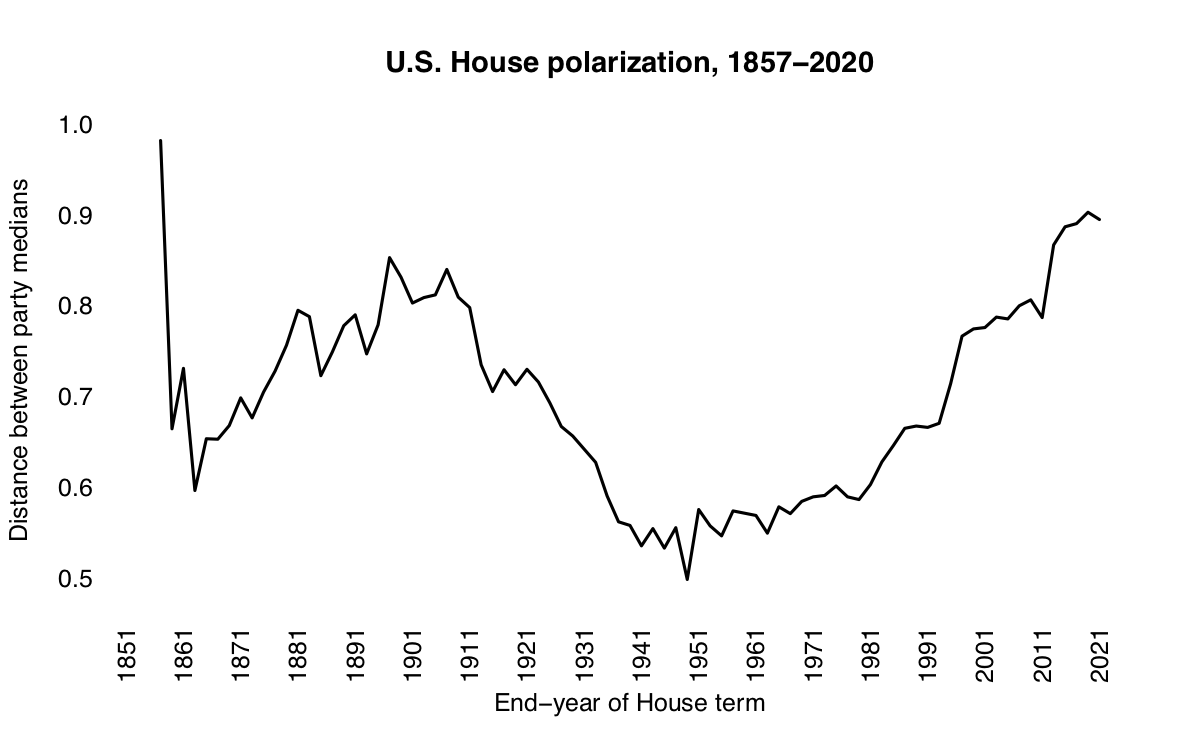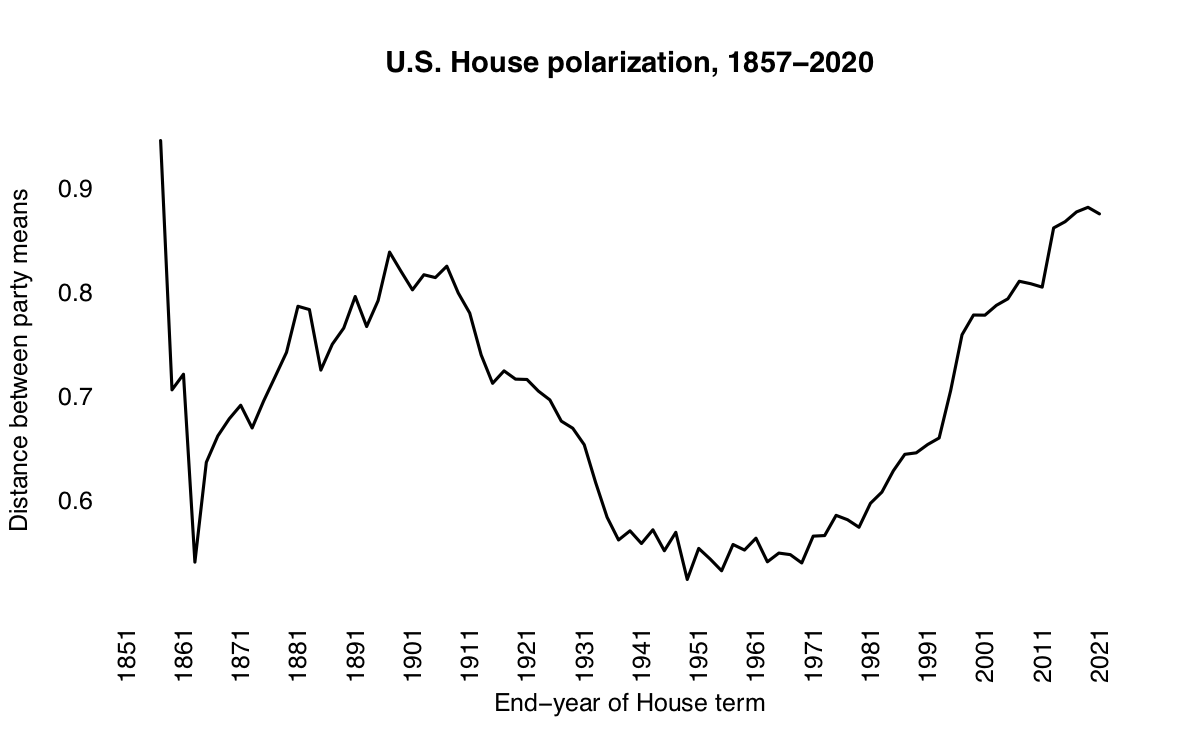These are posted on Medium.
Tag: political parties
Interesting words from Hermens
What follows is from a conference paper given in 1985, at the Annual Meeting of the American Political Science Association (New Orleans). Hermens was wrong about a lot. An example is his insistence on the phrase “majority voting,” which he used to describe anything other than “PR” (which also does not convey much information). On other things, he seems to have been right.
The paper was written in a period of re-polarization. The advice to embrace “majority voting” should be viewed with that development in mind.
Dr. Hallett, who has carried the American banner for P.R. for so many years, recently published an essay entitled “Proportional Representation with the Single Transferable Vote: A Basic Requirement for Legislative Elections.” He considers P.R. a logical implication of the “one-man one-vote” rule and has expressed hope that the Supreme Court will declare it a requirement of the Constitution. This point will apparently be argued before the Court in the case of Davis vs. Bandemer, which centers on gerrymandering, but has caused proponents of P.R. to state that no redistricting under majority voting will do; it has to be P.R. all the way, and the Single Transferable Vote (STV) at that.
In an examination of the issues involved it might be useful to recall what Walter Lippmann wrote two generations ago: “For the most part, we do not first see and then define; we define first and then see.” This statement is more relevant now than it was when originally made, and nowhere more so than in a discussion of electoral systems. In the case of P.R. all essential problems arise from the fact that its proponents first use a concept of representation which takes much for granted of which they ought to prove, and then sees everything in light of that concept. They are thereby depriving themselves of a chance to observe any of the drawbacks which result from the application of P.R. while ignoring the positive aspects of what majority voting contributes to the democratic process.
De-polarization of the House of Representatives?
In updating some graphs today, I discovered something interesting (but not entirely unexpected). The House of Representatives appears to be de-polarizing.
Why? COVID-19 stimulus bills, “ends-against-the-middle” voting (one, two), something else?
Of course, it’s also possible that this is just a blip.
The graphs begin in 1856-7, which is the first session with both Republicans and Democrats in the House (data). Here is the usual plot, based on distances between the party medians:

And here is another with distances between the party means:

Thanks to Dr. Jennie Sweet-Cushman for the prod.